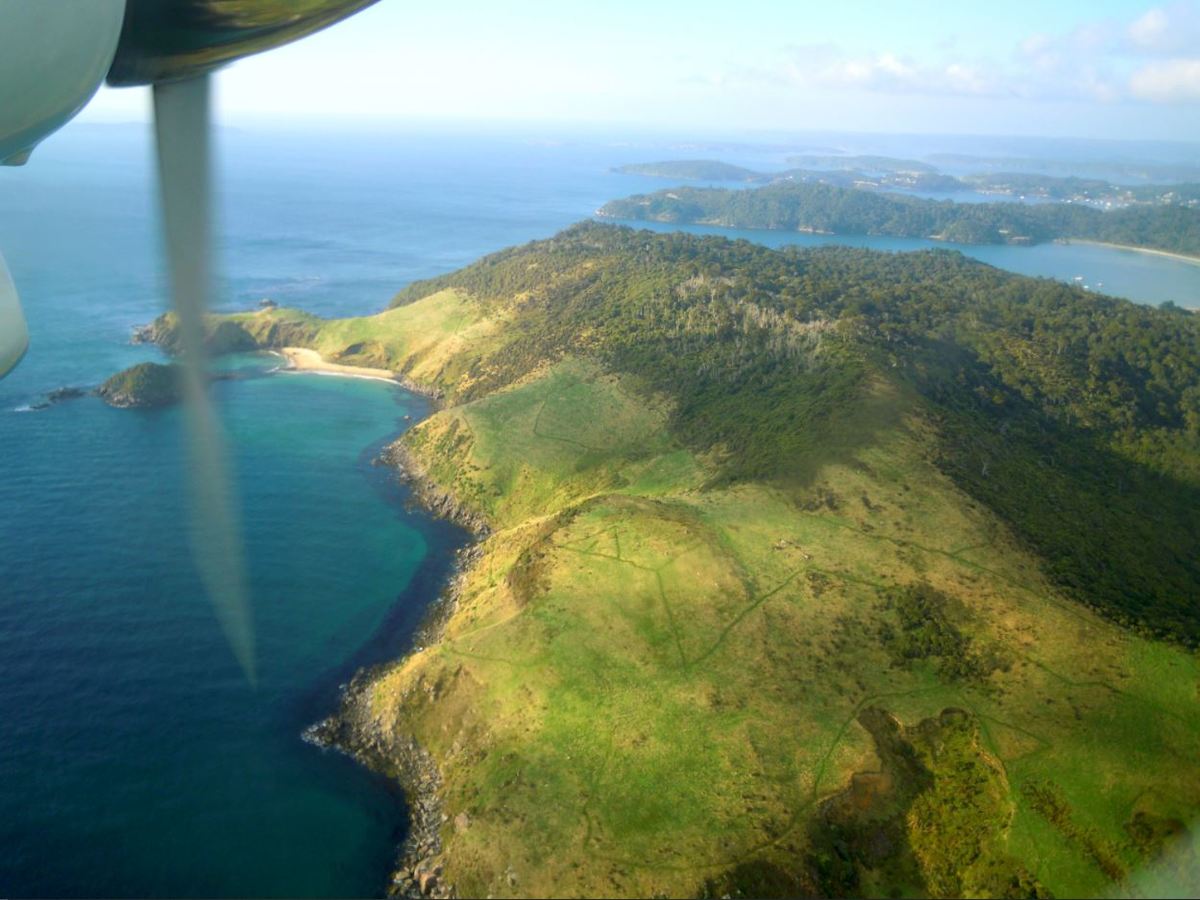Stewart Island and the challenges of going green
Paul Taylor
09 March 2021, 1:48 AM
 Stewart Island Photo: Lundtoft / Wikimedia Creative Commons
Stewart Island Photo: Lundtoft / Wikimedia Creative CommonsWith wind farm plans dead in the water, a power supply to Stewart Island is just one of the major issues facing Southland District Council as it looks to a greener future.
There are 456 properties on Rakiura supplied with electricity from a network of five diesel generators.
Back in November, the Government granted $3.16 million from the Provincial Growth Fund for a wind farm, meeting about 40% of the island's electricity needs.
But, last week Southland mayor Gary Tong confirmed the project won't go ahead as an agreement couldn't be reached with landowners.
There were also concerns about the ongoing maintenance costs.
Southland District Council raises the issue of the island's power supply in its submission on He Pou a Rangi / The Climate Change Commission's 2021 Draft Advice for Consultation.
The commission has set out how New Zealand will meet its climate change targets by 2030 and 2050, including using 60% renewable energy by 2035.
The council's draft submission, which goes before councillors tomorrow (Wednesday, March 10), was penned before the wind farm plans were cancelled, but the island's needs were still raised.
It's indicative of an issue across the whole of Southland in addressing climate change; a small ratepayer base meeting the huge costs of reducing environmental impacts.
Stewart Island councillor Bruce Ford says he hopes by 2035 there will be an alternative in place for the island, which is 90% National Park and a Dark Sky Sanctuary.
"We'll have used a hell of a lot of diesel by then, so hopefully something's done a whole lot sooner than that," he says.
"We're now attempting to pursue a cable, or some other method of reducing the emissions, but your guess is as good as mine.
"The wind farm was project number 18 - that's how many reports and projects we've had to date. Nobody's had a successful answer, so the community isn't holding its breath."
An undersea cable, connecting Stewart Island to Bluff was costed in the McCutcheon report at between $10m to $20m, depending on the route and number of cables.
A single cable on the shortest route (through the oyster beds) was costed at the low end, while a twin cable east of Green Island was at the $20m end of the range.
"The climate change initiatives call for us to move away from diesel, even moving to electric vehicles within two years, so as local government we need to keep up with all this."
The council also raises concerns the "fast decline of the coal sector may have devastating impacts on some small rural towns within the Southland District" in its submission.
There are two opencast, sub-bituminous mines in Ohai, Southland, which produced 153,124 tonnes of coal in 2019, or about 5% of NZ's total reported production.
And there are also two opencast lignite mines, at Waimumu and Ashers, among 18 coal mines of various types nationwide.
On agriculture, a vital part of Southland's economy, the council supports in principle to goal of reducing agricultural emissions but "would like to ensure the focus on reducing emissions is not at the expense of other important considerations such as water quality, farm business viability, animal welfare, and economic impacts."
On forestry, it supports the Government's goal of not relying solely on forestry as a carbon sink, but suggests a number of factors need to be considered in relation to both the advice to transition less productive land to permanent native forests, and to continue planting exotic forests.
Those factors include protecting important landscapes, protecting flora such as tussock lands, biodiversity loss, local species variation in relation to planting natives, job losses associated to land use change to forestry, and economic and other impacts associated to land use change.
"Again, having a staged transition with clear messaging, and giving councils time to respond and implement required planning changes will be vital," the draft submission reads.
Other concerns include the feasibility of public transport over such a wide area, the sourcing of lithium for batteries and its subsequent disposal, and the ability to fund walking, cycling and transport infrastructure due to the small and declining population.
But, the council is generally supportive of the push towards a "thriving, climate resilient and low emissions Aotearoa where our children will thrive" and is willing to play a role in bringing about "transformational and lasting change".
FOOD | DRINK
AG | TRADES & SUPPLIES